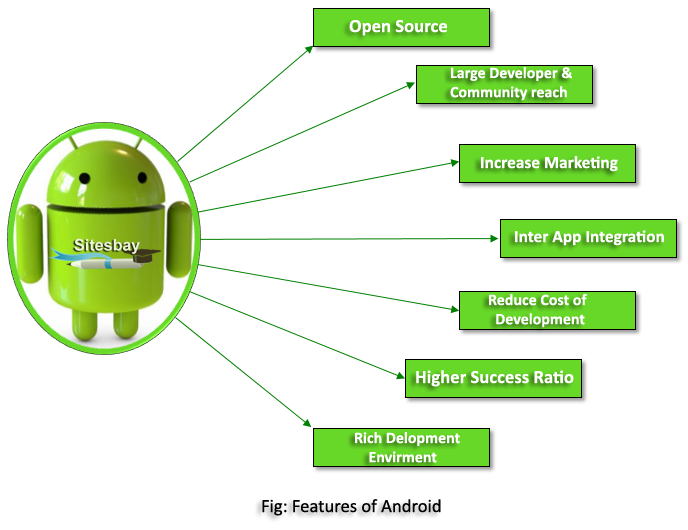In today's digital age, the word "Android" has become ubiquitous. From smartphones to tablets, smartwatches to smart TVs, Android powers a vast array of devices, shaping our daily interactions with technology. But what exactly is Android? Beyond the surface, what components make up this versatile operating system? Join us on a journey as we delve deep into the anatomy of what Android truly is.

Unraveling the Origins
What Android Is, in its essence, is a mobile operating system developed by Google. Born out of the vision to create a more open and accessible platform, Android was officially unveiled in 2007. Its inception marked a paradigm shift in the world of mobile computing, offering an alternative to the then-dominant players in the market. Today, Android stands as a testament to the power of collaboration and innovation.
Core Components
At its core, Android comprises various components that work seamlessly to provide a rich user experience. The kernel, a key component of Android, serves as the bridge between the hardware and software layers, enabling efficient resource management and device communication. Built atop the Linux kernel, Android incorporates layers such as the runtime environment, libraries, and application framework, each playing a vital role in its functionality.
A Window to Android's Soul
One of the defining features of Android is its customizable user interface. From homescreen widgets to dynamic wallpapers, Android empowers users to personalize their devices according to their preferences. The Material Design language, introduced by Google, further enhances the visual appeal of Android apps, fostering consistency and intuitive interaction across different devices. With Android, the user interface becomes more than just a gateway; it becomes an expression of individuality.
The Heartbeat of Android
Central to the Android experience is its vast ecosystem of applications. Google Play Store, the official app marketplace for Android, boasts millions of apps catering to diverse interests and needs. From productivity tools to entertainment, education to gaming, Android offers something for everyone. The openness of the platform encourages innovation, allowing developers to create and distribute apps with ease. What Android is, in many ways, is defined by the endless possibilities its app ecosystem offers.
Security and Privacy
As Android continues to evolve, so do the challenges of security and privacy. With its widespread adoption, Android has become a prime target for cyber threats and vulnerabilities. In response, Google has implemented various measures to enhance the security of the platform, including regular security updates, sandboxing of apps, and Google Play Protect—a built-in malware detection and removal tool. Moreover, Android provides users with granular control over their privacy settings, empowering them to manage app permissions and data sharing preferences. Ensuring the security and privacy of its users remains paramount in defining what Android is and will be in the future.
Unlocking the Potential
As we step into the era of artificial intelligence (AI), Android is poised to play an even more significant role in shaping our digital future. With advancements in machine learning and AI algorithms, Android is becoming smarter and more intuitive than ever before. From predictive text input to personalized recommendations, AI-powered features are seamlessly integrated into the Android experience, anticipating users' needs and enhancing their productivity. What Android is evolving into, in this era of AI, is not just a platform for communication and entertainment but a sophisticated companion that adapts and evolves with its users, unlocking new possibilities and redefining the boundaries of innovation.
Conclusion
In conclusion, Android is more than just an operating system; it's a symbol of innovation, accessibility, and empowerment. From its humble beginnings to its current status as a global powerhouse, Android has revolutionized the way we interact with technology. By exploring the anatomy of what Android is, we gain a deeper appreciation for the complexity and ingenuity behind this ubiquitous platform. As we continue to witness advancements and breakthroughs in the world of technology, one thing remains certain—Android will continue to shape the digital landscape for years to come.
